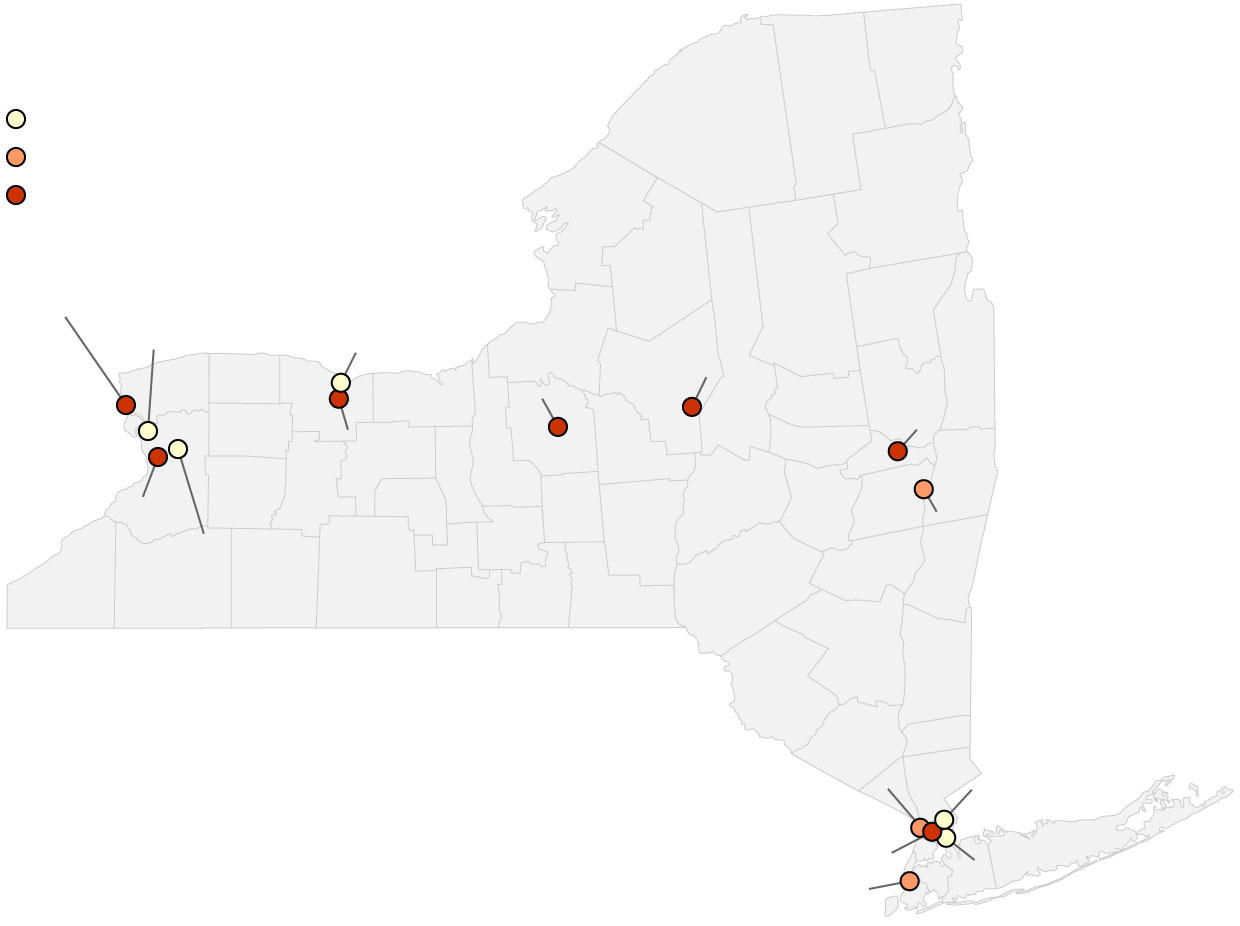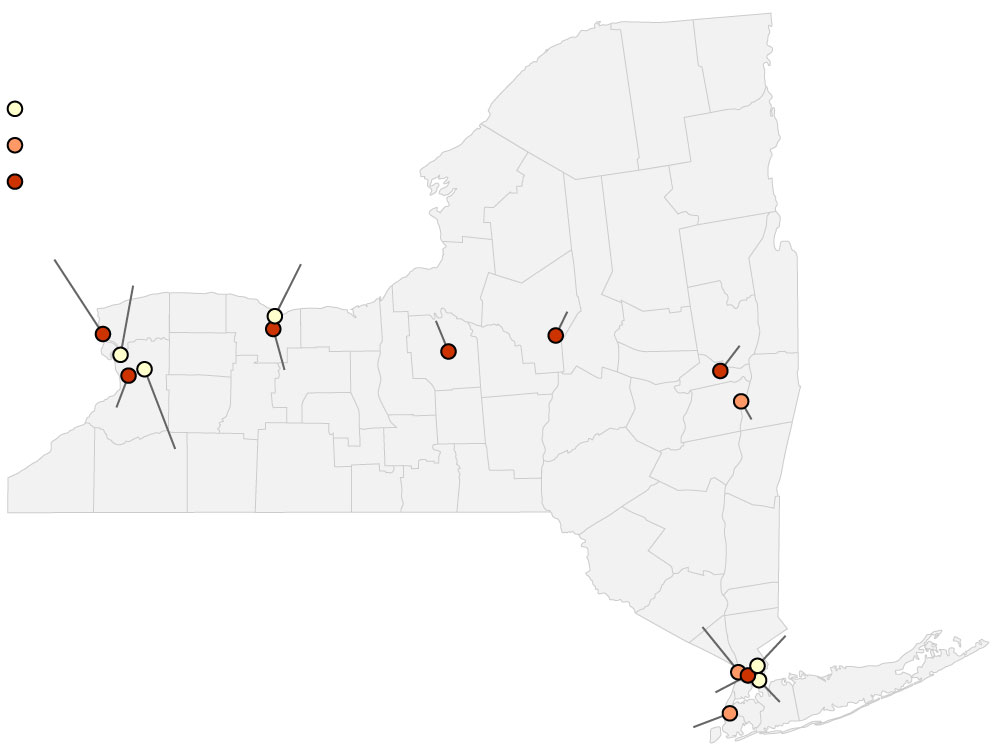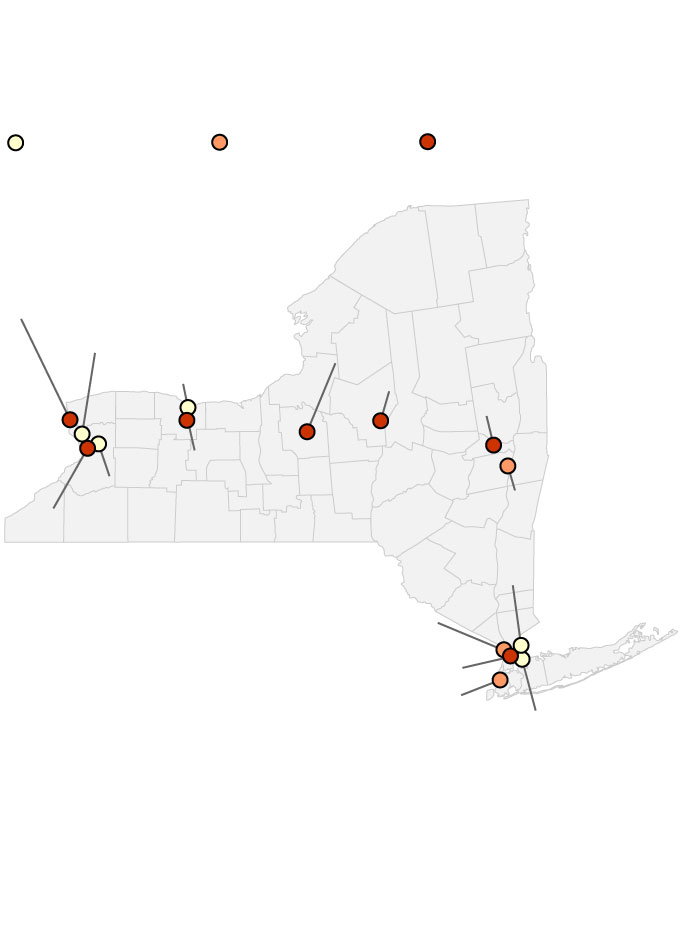ALICE households in New York

PERCENT OF HOUSEHOLDS BELOW ALICE THRESHOLD IN THE LARGEST CITIES AND TOWNS IN 2014
35-44%
45-54%
New York
55% and greater
Niagara Falls: 57%
Tonawanda: 35%
Irondequoit: 39%
Utica: 61%
Syracuse: 60%
Schenectady: 63%
Rochester: 69%
Buffalo: 60%
Albany: 52%
Cheektowaga: 43%
ALICE (Asset Limited, Income Constrained, Employed) is a way to measure poverty. It defines the population as a household with income above the official federal poverty level but below a newly defined basic survival income level.
White Plains: 36%
Yonkers: 45%
Mount Vernon: 55%
New Rochelle: 40%
New York: 52%

PERCENT OF HOUSEHOLDS BELOW ALICE THRESHOLD IN THE LARGEST CITIES AND TOWNS IN 2014
35-44%
45-54%
New York
55% and greater
Niagara Falls: 57%
Irondequoit: 39%
Tonawanda: 35%
Utica: 61%
Syracuse: 60%
Schenectady: 63%
Rochester: 69%
Buffalo: 60%
Albany: 52%
Cheektowaga: 43%
ALICE (Asset Limited, Income Constrained, Employed) is a way to measure poverty. It defines the population as a household with income above the official federal poverty level but below a newly defined basic survival income level.
Yonkers: 45%
White Plains: 36%
Mount Vernon: 55%
New Rochelle: 40%
New York: 52%

PERCENT OF HOUSEHOLDS BELOW ALICE THRESHOLD IN THE LARGEST CITIES AND TOWNS IN 2014
55% and greater
45-54%
35-44%
New
York
Niagara Falls: 57%
Tonawanda: 35%
Syracuse: 60%
Irondequoit: 39%
Utica: 61%
Schenectady: 63%
Rochester: 69%
Cheektowaga: 43%
Albany: 52%
Buffalo: 60%
White Plains: 36%
Yonkers: 45%
Mount Vernon: 55%
New York: 52%
New Rochelle: 40%
ALICE (Asset Limited, Income Constrained, Employed) is a way to measure poverty. It defines the population as a household with income above the official federal poverty level but below a newly defined basic survival income level.
Source: United Way of New York Peter Allen | pallen@syracuse.com